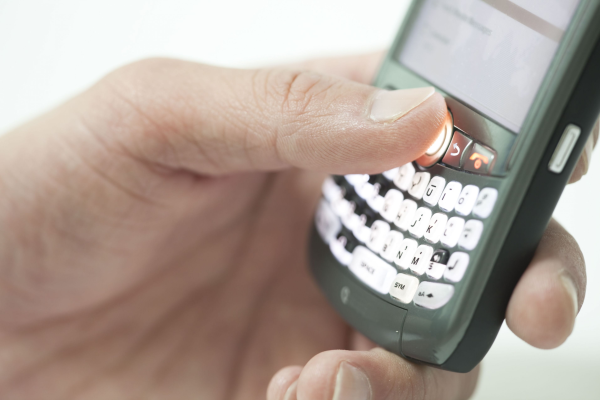 Mobile phone usage is growing rapidly and, according to Security Expert Robert Siciliano, cyber criminals are expected to pay more attention to the mobile sector as this trend continues to grow. From bulky bricks, to today's mini-computers, the cell phone has certainly evolved.
Mobile phone usage is growing rapidly and, according to Security Expert Robert Siciliano, cyber criminals are expected to pay more attention to the mobile sector as this trend continues to grow. From bulky bricks, to today's mini-computers, the cell phone has certainly evolved.
As Smartphones features continue to replace activities once reserved for our work or personal our computers, the data contained on our Smartphones becomes more valuable. The consequences of a cyber criminal accessing this information can be devastating. Though it was just last November that the first malicious malware hit the iPhone such viruses have now become mainstream as evidenced by anti-virus vendors like McAfee introducing an anti-malware solution for Smartphones. If you've ever accessed an online profile via a phone's internet connection then you have risked giving third parties access to your personal information. Imagine: Your identity could be stolen, you could be locked out of all of your accounts, account or financial data accessed, confidential business emails could be leaked, or your phone could even be used to spy on you.
In a recent study compilation by cellphones.org, sources indicated that 55% of Smartphone users believe that the individual is responsible for the security of their own phone. The fact is, no matter whose responsibility Smartphone security is, it is up to the individual to protect themselves. Bellow you will find tips on how to prevent cyber criminals from accessing your BlackBerry or iPhone.
BlackBerry:
The Blackberry is easily the most popular Smartphone on the market and, according to cellphones.org, the most ‘natively' secure. Just by having a Blackberry, you are one step ahead but that doesn't mean you don't still have to enable your security settings.
- Enable your password. Under General Settings set your password to ‘on' and select a secure password. You may also want to limit the number of password attempts. Test to make sure that your password works by locking your phone to confirm.
- Encrypt your data. Under Content Protection settings, enable encryption. Then, under ‘Strength' select either ‘stronger' or ‘strongest'. Though ‘strongest' is the most secure, ‘stronger' has faster encryption/decryption. Under the Content Protection settings you will also have the option to encrypt your address book.
- When visiting password protected internet sites do not save your passwords to the browser. Anyone who finds your phone and manages to unlock it will then have access to all of your account data and your identity will be stolen. It may be annoying to have to enter your password every time but the extra 30 seconds is certainly worth avoiding identity theft.
iPhone:
The iPhone, which has captured over 25% of the Smartphone market, the second highest share in the industry, has notoriously poor encryption capabilities. As such, enabling the included security features and adding apps that allow you to secure your information is key to being a ‘safe' iPhone owner.
- Enable the Pass code Lock and Auto-Lock. Go into your phones General Settings and set the 4-digit phone pass code to something that you will remember but is not ‘significant' to you. That means no birth dates, no anniversary dates, no children's ages. Then, go back into General Settings and set the Auto-Lock. Although you can choose from 1 min to 5min, the quicker your phone locks the safer it is from those who might be tempted to tamper with it while you aren't looking.
- Turn your Bluetooth off unless you are using it. Bluetooth allows you to easily connect to a hands-free head set or to send files from your phone to a computer. However, this also works the other way. A tech savvy hacker with a laptop can easily hack your phone from the Bluetooth connection if it's on.
- Download Simple Vault 1.2. Simple vault adds a second layer of protection to your iPhone by allowing you to password protect each of your apps. It also allows you to store your sensitive information right on your phone, unlike other security apps which send it to you over the internet when you access it
General:
- Whenever possible, wait till you get to your computer on a secured network before accessing sensitive information. When responding to important work emails or checking your bank account balance it really is best to wait until you can access this information from a secure network. Anti-virus and anti-malware software as well encryption capabilities for computers are miles ahead than what is currently available for phones. So ask yourself before you enter your credit card number to that online store: Is it worth identity theft for me to do this now or can it wait till I get back to the office/home?
- Consider investing in an Identity Protection service. This way, even if your Smartphone is compromised you won't be risking your identity.
Bookmark/Search this post with:


 Delicious
Delicious Digg
Digg StumbleUpon
StumbleUpon Propeller
Propeller Reddit
Reddit Magnoliacom
Magnoliacom Furl
Furl Facebook
Facebook Google
Google Yahoo
Yahoo Technorati
Technorati